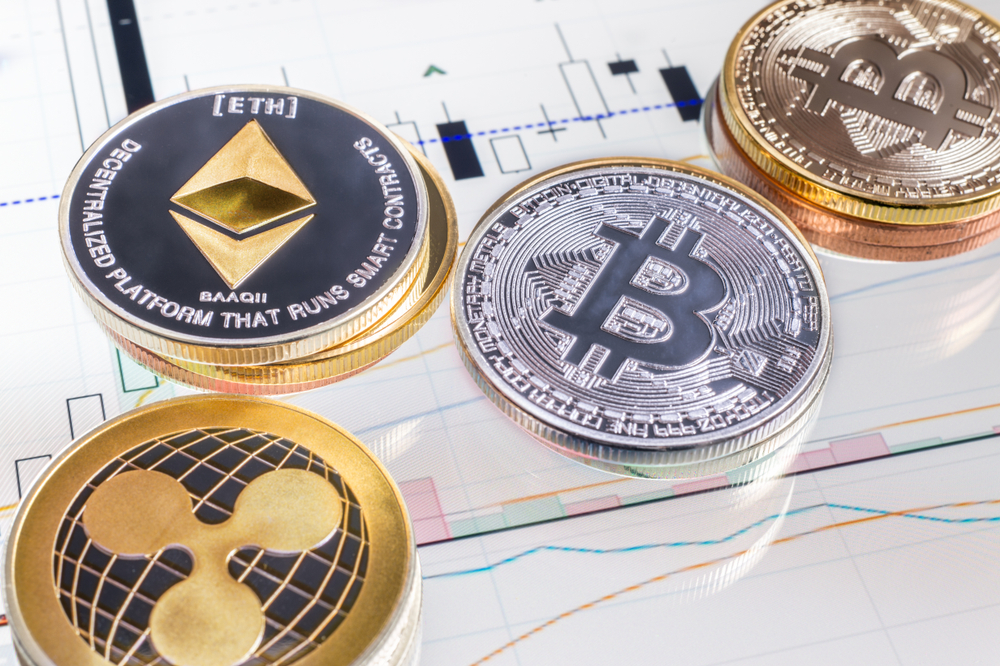At The Oxford Club’s Private Wealth Seminar at the Broadmoor resort in Colorado Springs last September, I gave a talk on short-term trading strategies.
Near the end, I asked the audience, “How many of you own cryptocurrencies?”
About three-quarters of attendees raised a hand.
I told them they were part of a classic financial bubble. And that it would not end well.
As I’ve reported here several times over the last few months…
- Cryptocurrencies have no tangible value.
- They fluctuate wildly in value, making them unsuitable for most business purposes.
- They make transactions slower, more complicated and more expensive.
- They are environmentally destructive.
- They are vulnerable to competition within the industry and regulation from outside the industry.
- Crypto holders are susceptible to hackers, operational glitches and malware.
- They are regularly cheated or defrauded.
- And the crypto ecosystem lacks accountability and legal recourse, so there is little basis for trust.
It’s wrong to even call crypto an “investment.”
After all, there is nothing to analyze. No interest payments, sales, royalties, rental income, cash flow, earnings or net asset value.
A cryptocurrency is worth what someone else is willing to pay for it. Period.
Just like a Hank Aaron rookie card or a first edition Spider-Man comic book.
That evening in Colorado Springs, however, I had dinner with a member of our film crew.
“Man,” he said, “when you warned everybody about crypto today, I just wanted to jump up on stage and tell them all to buy!”
“Really?” I said. “What if Ethereum – your favorite crypto – were suddenly worth 10 times as much as it is today? Would it be overvalued then?”
He thought about it for a moment and said he wasn’t sure.
“What if it were worth 100 times as much as it is today?” I asked. “Would it be too expensive to buy then?”
His eyes rolled back as if he were considering something important for the first time.
“I’m not sure how to answer that,” he confessed.
“Then why would you want to jump up on stage and urge everyone to buy it?” I said. “Especially since it’s already up more than 100-fold.”
Digital currencies – with the exception of stablecoins – solve no real-world problems, cannot be independently valued and have zero chance of being integrated into the broader financial system. Yet we’re supposed to believe that the outlook here is so great that no price is too much to pay?
That is cryptomania.
It’s now four months later and the crypto market has crashed, down approximately half from its November peak.
Folks who bought Bitcoin and other leading cryptos early and have held on are still up. Possibly way up.
But this is only the beginning of the end.
We’re headed for a crypto collapse, one that will rival the popping of the dot-com bubble.
As the Federal Reserve gets ready to raise interest rates, all sorts of assets have taken a shellacking, of course.
But history reveals that great businesses with products, sales, earnings, dividends and tangible book values will bounce back.
Crypto, to quote financier John Paulson – who made $20 billion in the mortgage meltdown during the financial crisis – is not just a bubble but “a limited supply of nothing.”
Warren Buffett – not one to mince words – refers to it simply as “rat poison squared.”
Defenders of crypto generally respond with an incomprehensible word salad – where language takes a holiday – or make fantastical promises about how crypto will revolutionize the world of finance – and for the better!
No, it won’t.
Bitcoin has been around for 13 years. What is it good for? Two things: speculation and black-market activities.
If you are a terrorist network, heavy weapons dealer, drug cartel, human trafficker, extortionist or tax cheat, crypto is a godsend.
It is the new currency of corruption.
It’s just a matter of time before governments worldwide step on it, as China already has.
Yes, a handful of retailers accept it. But crypto will not be integrated into the world’s financial system. That would be a disaster.
Writing in last week’s Wall Street Journal, Steve Hanke, a famously successful currency trader and a senior fellow at the Cato Institute’s Center for Monetary and Financial Alternatives, was blunt about the risks posed:
Cryptocurrencies are untethered from economic value. To treat crypto as actual wealth on par with labor earnings and returns on actual investments would grant enormous purchasing power to people who have done nothing to expand the productive capacity of the economy. Monetizing crypto would be tantamount to legalizing counterfeit currency. Granting crypto operators access to the core of the regulated financial system would be catastrophic.
Can anyone understand this and remain bullish on crypto?
The short answer is they are true believers getting ready for the next big rally.
And you know what? There will be some.
And then, eventually, there won’t. Not ones that matter, anyway.
Bubbles of this proportion always end the same way: in tears.
Here’s my advice…
The folks who told you to buy the pot stock dip when that bubble burst, the meme stock dip when that bubble burst, and are now urging you to buy the crypto dip? Write down these geniuses’ names.
Because you’ll want to remember them when they pivot to their next “opportunity.”
Click here to watch Alex’s latest video update.

